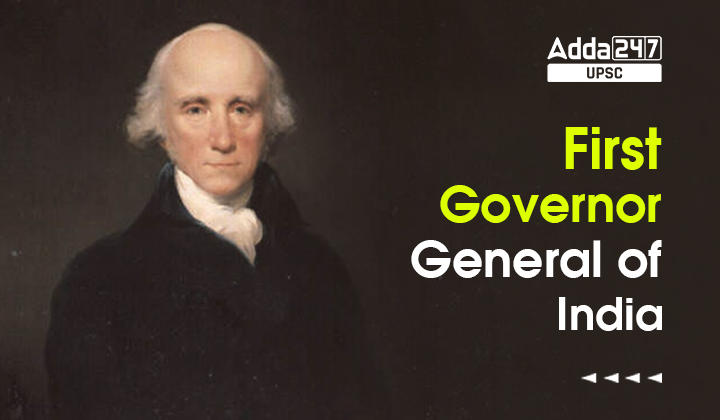Table of Contents
Lord William Bentinck was the first Governor-General of India who served from 1828 to 1835. He was appointed to the post by the British East India Company and was responsible for overseeing the administration of British India.
Bentinck is widely regarded as a progressive and reformist governor-general who implemented several significant social, economic, and administrative reforms during his tenure. His contributions to India’s modernization and development are still remembered and celebrated to this day.
Lord William Bentinck- (First Governor General of India)
- William Henry Cavendish-Bentinck, also known as Lord William Bentinck, was born on September 14, 1774, in Buckinghamshire, England.
- He was the second son of William Bentinck, 3rd Duke of Portland, and Lady Dorothy Cavendish.
- Bentinck received his education at Eton College and then went on to study at the University of Glasgow.
- In 1791, he joined the British Army and served in the Netherlands during the French Revolutionary Wars.
- He was elected to the House of Commons in 1796 and served as a Member of Parliament for various constituencies for over 30 years.
- In 1803, he was appointed as Governor of Madras, a British colony in India, where he served for seven years.
- Bentinck returned to England in 1807 and continued to serve as a Member of Parliament until his appointment as Governor-General of India in 1828.
- He was known for his liberal views and reformist policies, which he implemented during his time as Governor of Madras and later as Governor-General of India.
William Bentinck Reforms as Governor-General of India
Abolition of Sati: One of the most significant reforms introduced by Bentinck was the abolition of the practice of Sati in 1829. Sati was a Hindu funeral custom in which widows were expected to immolate themselves on their husband’s funeral pyre. Bentinck’s decision to ban the practice was a major step toward women’s rights and social reform.
Promotion of English Education: Bentinck believed that English education was necessary for India’s progress and modernization. He encouraged the establishment of English schools and colleges and provided financial support for their development. Bentinck’s policies led to the growth of English education in India and laid the foundation for the country’s modern education system.
Establishment of Sanskrit College: Despite his promotion of English education, Bentinck also recognized the importance of India’s traditional knowledge systems. In 1824, he established the Sanskrit College in Calcutta, which aimed to preserve and promote the study of Sanskrit literature and Indian philosophy.
Encouragement of Vernacular Education: Along with English education, Bentinck also supported the development of vernacular education. He encouraged the establishment of schools and colleges that taught in Indian languages and provided grants for their development.
Introduction of Civil Service Examinations: Bentinck introduced competitive civil service examinations for the selection of Indian administrative officers. The examinations were conducted in English and were aimed at selecting the best candidates for administrative positions.
Death and legacy of Lord William Bentinck
Lord William Bentinck, the first Governor-General of India, passed away on June 17, 1839, in Paris, France, at the age of 64. He was buried at the Kensal Green Cemetery in London.
Bentinck’s legacy in India is remembered for his progressive and reformist policies that helped modernize and develop the country. His abolition of the practice of Sati and his promotion of English education is seen as major steps toward social reform and the modernization of India.
Bentinck’s policies were not without criticism, particularly from conservative elements in India who opposed his reforms. However, his legacy has endured, and he is widely regarded as one of the most important British administrators in India’s colonial history.
Beyond India, Bentinck is remembered for his political career in Britain. He served as a Member of Parliament for over 30 years and was known for his liberal views and support for political and social reform. Bentinck’s legacy as a champion of progressive causes continues to inspire people around the world.



 TSPSC Group 1 Question Paper 2024, Downl...
TSPSC Group 1 Question Paper 2024, Downl...
 TSPSC Group 1 Answer key 2024 Out, Downl...
TSPSC Group 1 Answer key 2024 Out, Downl...
 UPSC Prelims 2024 Question Paper, Downlo...
UPSC Prelims 2024 Question Paper, Downlo...




